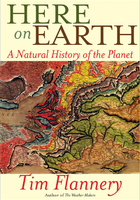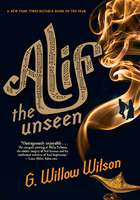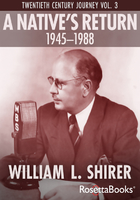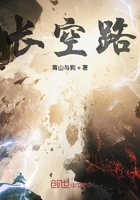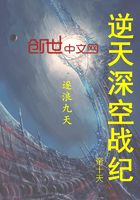THE ECOLOGY OF LAW
To all the bright young people
worldwide who pursue an
academic education still hoping
to change the world.
Over the last four decades, dozens of scholarly and popular books have explored the fundamental change of worldview, or change of paradigms, that is now occurring in science and in society-a change from a mechanistic to a holistic and ecological vision of reality. None of these books, however, has paid attention to the fact that this paradigm shift has an important legal dimension. This legal dimension is the central focus of The Ecology of Law.
The idea for this book originated in a series of conversations between a scientist (Capra) and a legal scholar (Mattei) about the concept of law in science and jurisprudence. The first conversations took place on a tennis court; they led to more structured discussions and subsequently to two semester-long seminars we taught at the University of California Hastings College of the Law in San Francisco. As our fascination with the subject grew, we decided to turn our discussions into a book.
When people think about law, they usually think about lawyers and their court cases. The Ecology of Law is the first book to present the law as a system of knowledge and jurisprudence-the theory and philosophy of law-and as an intellectual discipline with a history and conceptual structure that show surprising parallels to those of natural science. Indeed, the two disciplines have interacted throughout history; as they have coevolved over time, so has the conceptual relationship between "laws of nature" and human laws.
Our principal thesis is that Western jurisprudence, together with science, has contributed significantly to the mechanistic modern worldview; since modernity produced the materialistic orientation and extractive mentality of the Industrial Age, which lies at the root of today's global ecological, social, and economic crisis, both scientists and jurists must share some responsibility for the current state of the world. Because the critical target of this book is the dominant global system of knowledge and power, this book discusses only Western law and Western science. There is no ethnocentrism in this choice-only the urgency to place responsibility where it belongs.
At the forefront of science, a radical change of paradigms-from a mechanistic to a systemic and ecological worldview-is now emerging. The very essence of this paradigm shift is a fundamental change of metaphors: from seeing the world as a machine to understanding it as a network of ecological communities. Moreover, the science of ecology has shown us that nature sustains the web of life through a set of ecological principles that are generative rather than extractive.
A corresponding paradigm shift has yet to happen both in jurisprudence and in the public conception of the law. It is now urgently needed, since the major problems of our time are systemic problems, and our global crisis is an ecological crisis in the broadest sense of the term. In this book, we call for a profound change of legal paradigms, leading to a new ecological order in human law.
Throughout the book we discuss three interrelated themes: the relationship between science and jurisprudence, and between the "laws of nature" and human laws; the contributions of jurisprudence and science to the modern worldview, and of modernity to the current global crisis; and the recent paradigm shift in science and the need for a corresponding shift in law to develop an ecological legal order.
The book is divided into an Introduction and ten chapters. In the Introduction, we present our principal thesis. In Chapter 1, we clarify some misconceptions about the similarities and differences between science and jurisprudence.
In Chapter 2, we review the evolution of Western scientific thought from antiquity to the Scientific Revolution and the Enlightenment, culminating in a mechanistic paradigm that advocates the human domination of nature; views the material world as a machine; postulates the concept of objective, unchangeable "laws of nature"; and promotes a rationalist, atomistic view of society.
In Chapter 3, we discuss the corresponding evolution of Western legal thought, which resulted in a mechanistic legal paradigm in which social reality is viewed as an aggregate of discrete individuals and ownership as an individual right, protected by the state. Indeed, we present ownership and state sovereignty as the two organizing principles of legal modernity. Moreover, we emphasize that, in the mechanistic paradigm, law has become an "objective" framework with no room for a human interpreter.
In Chapter 4, we describe the rise and principal characteristics of legal modernity, including the profound social transformation, in little more than three hundred years, from a situation of abundant commons and scarce capital to the current one of excessive capital and dramatically weak ecological commons and community ties. We also discuss the rise and domination of economic science, the fiction of corporations as legal "persons," and the reductionist idea of a single legal order.
In Chapter 5, we review the paradigm shift in science from seeing the world as a machine to understanding it as a network, including the conceptual revolution in physics during the first three decades of the twentieth century and the subsequent emergence of systems thinking in the life sciences.
In Chapter 6, we show how the Romantic and evolutionary critiques of Cartesian rationality in legal thinking failed to overcome the mechanistic vision, which consequently has proved much more resilient in the law than in science.
In Chapter 7, we describe what we call the "mechanistic trap," a set of incentive schemes that "naturalize" the current situation. It is especially difficult to escape the mechanistic trap, because the status quo, looking natural rather than cultural, disempowers people.
In Chapter 8, we discuss three fundamental principles necessary to overcome the situation described in Chapter 7: disconnecting law from power and violence; making community sovereign; and making property generative.
In Chapter 9, we outline the legal structure of the "commons," the relational institution that should lie at the core of a legal system consistent with the ecological principles that sustain life on our planet.
In Chapter 10, we conclude with a first sketch of some basic principles of an "ecolegal" order, and we illustrate them with examples of current revolutionary struggles that try to make such a new order a reality.
In addition to being espoused by jurists and lawyers, the mechanistic worldview of modernity still holds sway among business and political leaders. In particular, they relentlessly pursue the persistent illusion of perpetual economic growth on a finite planet by promoting excessive consumption and a throwaway economy that is energy and resource intensive, generating waste and pollution and depleting the Earth's natural resources.
Both the current global economy and the legal order embedded in it are manifestly unsustainable, and a new ecolegal order-based on ecological and legal literacy, fair sharing of the commons, civic engagement, and participation-is urgently needed. However, such a new legal system cannot be imposed, nor can it be described precisely at this point. We need to allow it to emerge, and we urge all citizens to participate in this process. The assertion that each one of us can participate now in the making of the new ecolegal order is the hopeful conclusion of our book.
THE ECOLOGY OF LAW


